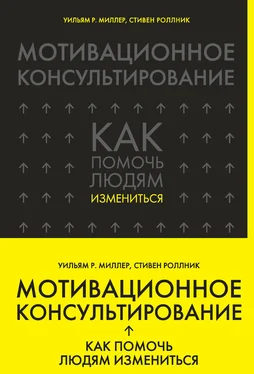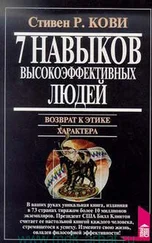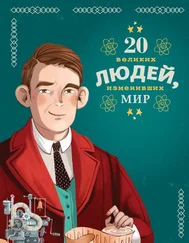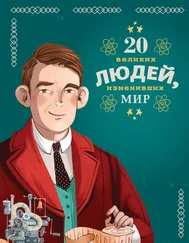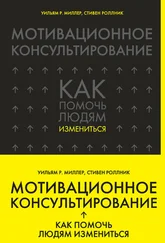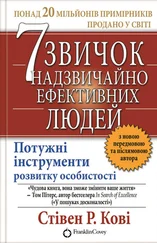Suarez, M. (2011). Application of motivational interviewing to neuropsychology practice: A new frontier for evaluations and rehabilitation. In M. R. Schoen– berg & J. G. Scott (Eds.), The little black book of neuropsychology: A syndrome-based approach (pp. 863–872). New York: Springer.
Sullivan, H. S. (1970). The psychiatric interview. New York: Norton.
Swan, M., Schwartz, S., Berg, B., Walker, D., Stephens, R., & Roffman, R. (2008). The teen marijuana check-up: An in-school protocol for eliciting voluntary self-assessment of marijuana use. Journal of Social Work Practice in the Addictions, 8(3), 284–302.
Switzer, G. E., Simmons, R. G., & Dew, M. A. (1996). Helping unrelated strangers:
Physical and psychological reactions to the bone marrow donation process among anonymous donors. Journal of Applied Social Psychology, 26, 469490.
Taveras, E. M., Gortmaker, S. L., Hohman, K. H., Horan, C. M., Kleinman, K. P., Mitchell, K., et al. (2011). Randomized controlled trial to improve primary care to prevent and manage childhood obesity: The High Five for Kids study. Archives of Pediatric Adolescent Medicine, 165(8), 714–722.
Tevyaw, T. O., Borsari, B., Colby, S. M., & Monti, P. M. (2007). Peer enhancement of a brief motivational intervention with mandated college students. Psychology of Addictive Behaviors, 21(1), 114–119.
Tevyaw, T. O., & Monti, P. M. (2004). Motivational enhancement and other brief interventions for adolescent substance abuse: Foundations, applications, and evaluations. Addiction, 99(Suppl. 2), S63–S75.
The Dalai Lama, & Ekman, P. (2008). Emotional awareness. New York: Times Books.
Thevos, A. K., Kaona, F. A., Siajunza, M. T., & Quick, R. E. (2000). Adoption of safe water behaviors in Zambia: Comparing educational and motivational approaches. Education for Health, 13(3), 366–376.
Thevos, A. K., Olsen, S. J., Rangel, J. M., Kaona, F. A. D., Tembo, M., & Quick, R. E. (2002). Social marketing and motivational interviewing as community interventions for safe water behaviors: Follow-up surveys in Zambia. International Quarterly of Community Health Education, 21(1), 51–65.
Thevos, A. K., Quick, R. E., & Yanduli, V. (2000). Motivational interviewing enhances the adoption of water disinfection practices in Zambia. Health Promotion International, 15(3), 207–214.
Thomas, M. L., Elliott, J. E., Rao, S. M., Fahey, K. F., Paul, S. M., & Mias– kowski, C. (2012). A randomized, clinical trial of education or motivational– interviewing-based coaching compared to usual care to improve cancer pain management. Oncology Nursing, 39(1), 39–49.
Thrasher, A. D., Golin, C. E., Earp, J. A., Tien, H., Porter, C., & Howie, L. (2006). Motivational interviewing to support antiretroviral therapy adherence: The role of quality counseling. Patient Education and Counseling, 62(1), 64–71.
Trice, H. M., & Beyer, J. M. (1984). Work-related outcomes of the constructive– confrontation strategy in a job-based alcoholism program. Journal of Studies on Alcohol, 45, 393–404.
Truax, C. B. (1966). Reinforcement and non-reinforcement in Rogerian psychotherapy. Journal of Abnormal Psychology, 71, 1–9.
Truax, C. B., & Carkhuff, R. R. (1967). Toward effective counseling and psychotherapy. Chicago: Aldine.
Uebelacker, L. A., Hecht, J., & Miller, I. W. (2006). The family check-up: A pilot study of a brief intervention to improve family functioning in adults. Family Process, 45(2), 223–236.
UKATT Research Team. (2001). United Kingdom alcohol treatment trial (UKATT): Hypotheses, design and methods. Alcohol and Alcoholism, 36(1), 11–21.
UKATT Research Team. (2005). Effectiveness of treatment for alcohol problems: Findings of the randomized UK alcohol treatment trial (UKATT). British Medical Journal, 331, 541–544.
Vader, A. M., Walters, S. T., Prabhu, G. C., Houck, J. M., & Field, C. A. (2010).
The language of motivational interviewing and feedback: Counselor language, client language, and client drinking outcomes. Psychology of Addictive Behaviors, 24(2), 190–197.
Valanis, B., Lichtenstein, E., Mullooly, J. P., Labuhn, K., Brody, K., Severson, H. H., et al. (2001). Maternal smoking cessation and relapse prevention during health care visits. American Journal of Preventive Medicine, 20(1), 1–8.
Valanis, B., Whitlock, E. E., Mullooly, J., Vogt, T., Smith, S., Chen, C., et al. (2003). Screening rarely screened women: Time-to-service and 24–month outcomes of tailored interventions. Preventive Medicine, 37(5), 442–450.
Valle, S. K. (1981). Interpersonal functioning of alcoholism counselors and treatment outcome. Journal of Studies on Alcohol, 42, 783–790.
van Keulen, H. M., Mesters, I., Ausems, M., van Breukelen, G., Campbell, M., Resnicow, K., et al. (2011). Tailored print communication and telephone motivational interviewing are equally successful in improving multiple lifestyle behaviors in a randomized controlled trial. Annals of Behavioral Medicine, 41, 104–118.
Van Ryzin, M. J., Stormshak, E. A., & Dishion, T. J. (2012). Engaging parents in the family check-up in middle school: Longitudinal effects on family conflict and problem behavior through the high school transition. Journal of Adolescent Health.
VanWormer, J. J., & Boucher, J. L. (2004). Motivational interviewing and diet modification: A review of the evidence. The Diabetes Educator, 30(3), 404406, 408–410, 414–406, passim.
Velasquez, M. M., von Sternberg, K., Dodrill, C., Kan, L., & Parsons, J. (2005). The transtheoretical model as a framework for developing substance abuse interventions. Journal of Addictions Nursing, 16(1), 31–40.
Velasquez, M. M., Maurer, G. G., Crouch, C., & DiClemente, C. C. (2001). Group treatment for substance abuse: A stages of change therapy manual. New York: Guilford Press.
Villanueva, M., Tonigan, J. S., & Miller, W. R. (2007). Response of Native American clients to three treatment methods for alcohol dependence. Journal of Ethnicity in Substance Abuse, 6(2), 41–48.
Viscott, D. S. (1972). The making of a psychiatrist. Westminster, MD: Arbor House.
Vong, S. K., Cheing, G. L., Chan, F., So, E. M., & Chan, C. C. (2011). Motivational enhancement therapy in addition to physical therapy improves motivational factors and treatment outcomes in people with low back pain: A randomized controlled trial. Archives of Physical Medicine and Rehabilitation, 92 (2), 176–183.
Vuchinich, R. E., & Heather, N. (Eds.). (2003). Choice, behavioral economics, and addiction. New York: Pergamon.
Wagener, T. L., Leffingwell, T. R., Mignogna, J., Mignogna, M. R., Weaver, C. C., Cooney, N. J., et al. (2012). Randomized trial comparing computer-delivered and face-to-face personalized feedback interventions for high-risk drinking among college students. Journal of Substance Abuse Treatment.
Wagner, C. C., & Ingersoll, K. S. (2009). Beyond behavior: Eliciting broader change with motivational interviewing. Journal of Clinical Psychology, 65(11), 1180–1194.
Wagner, C. C., & Ingersoll, K. S. (in press). Motivational interviewing in groups. New York: Guilford Press.
Wahab, S., Menon, U., & Szalacha, L. (2008). Motivational interviewing and colorectal cancer screening: A peek from the inside out. Patient Education and Counseling, 72, 210–217.
Waldron, H. B., Miller, W. R., & Tonigan, J. S. (2001). Client anger as a predictor of differential response to treatment. In R. Longabaugh & P. W. Wirtz (Eds.), Project MATCH hypotheses: Results and causal chain analyses (Vol. 8, pp. 134–148). Bethesda, MD: National Institute on Alcohol Abuse and Alcoholism.
Читать дальше
Конец ознакомительного отрывка
Купить книгу
